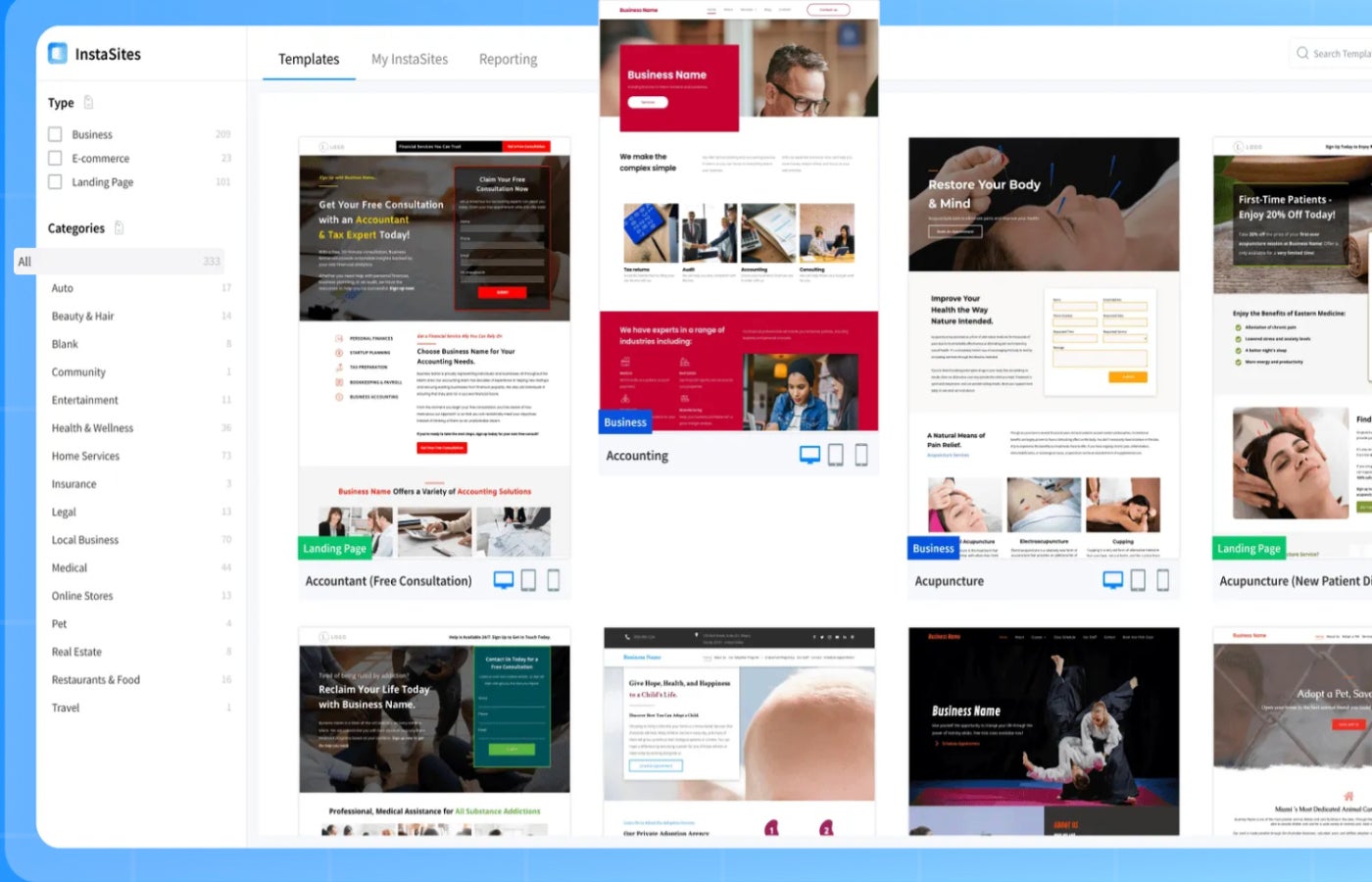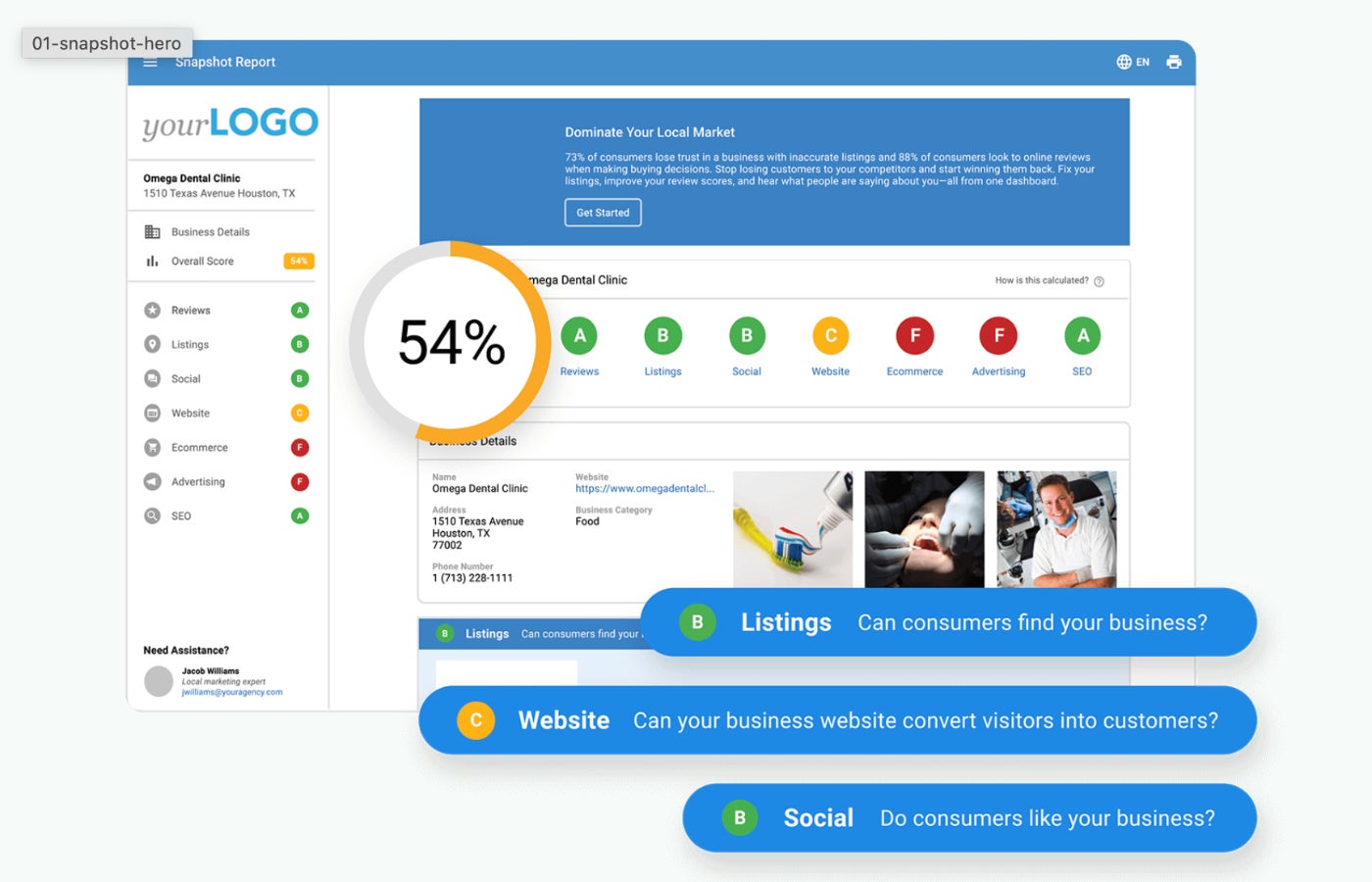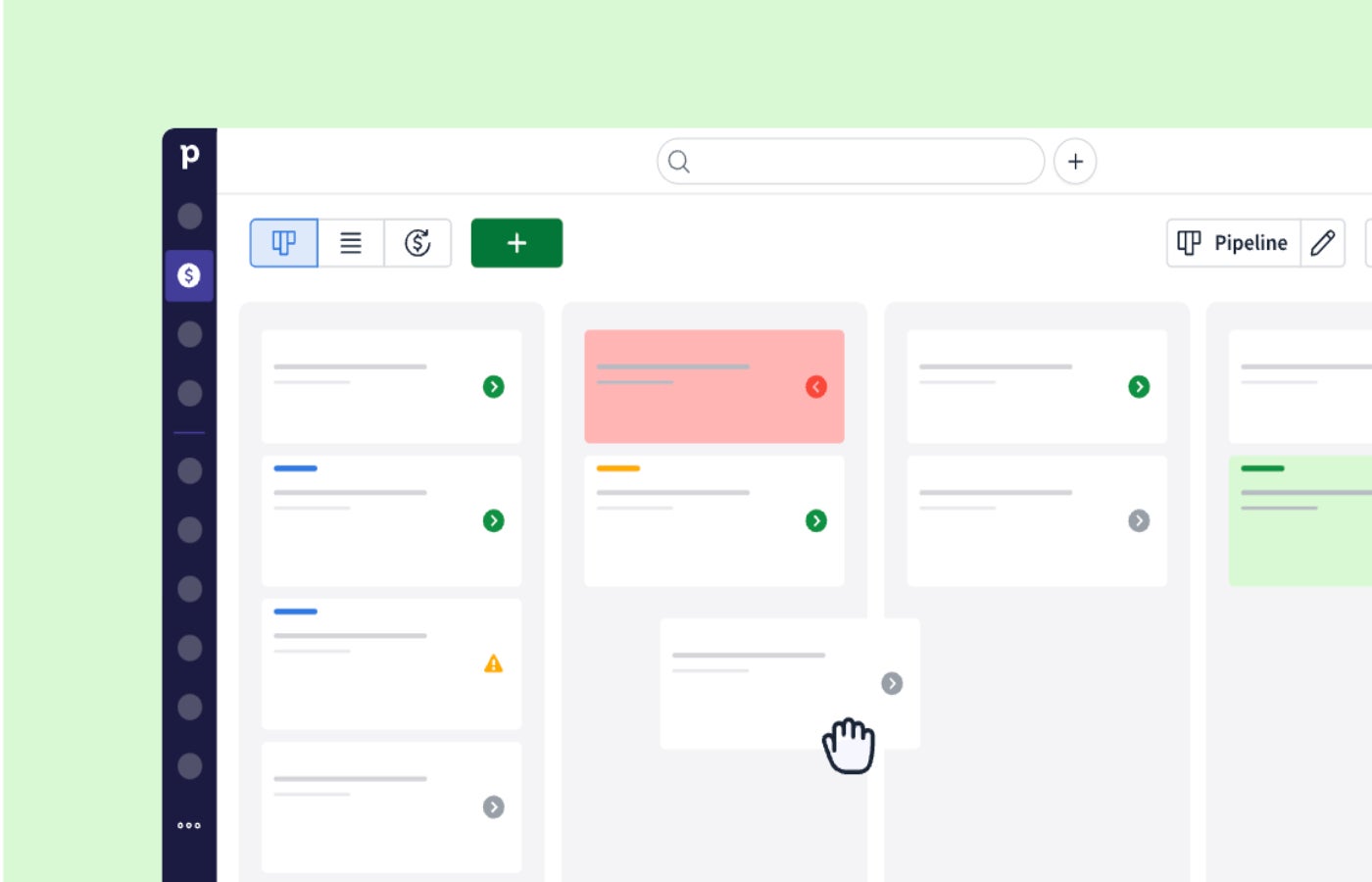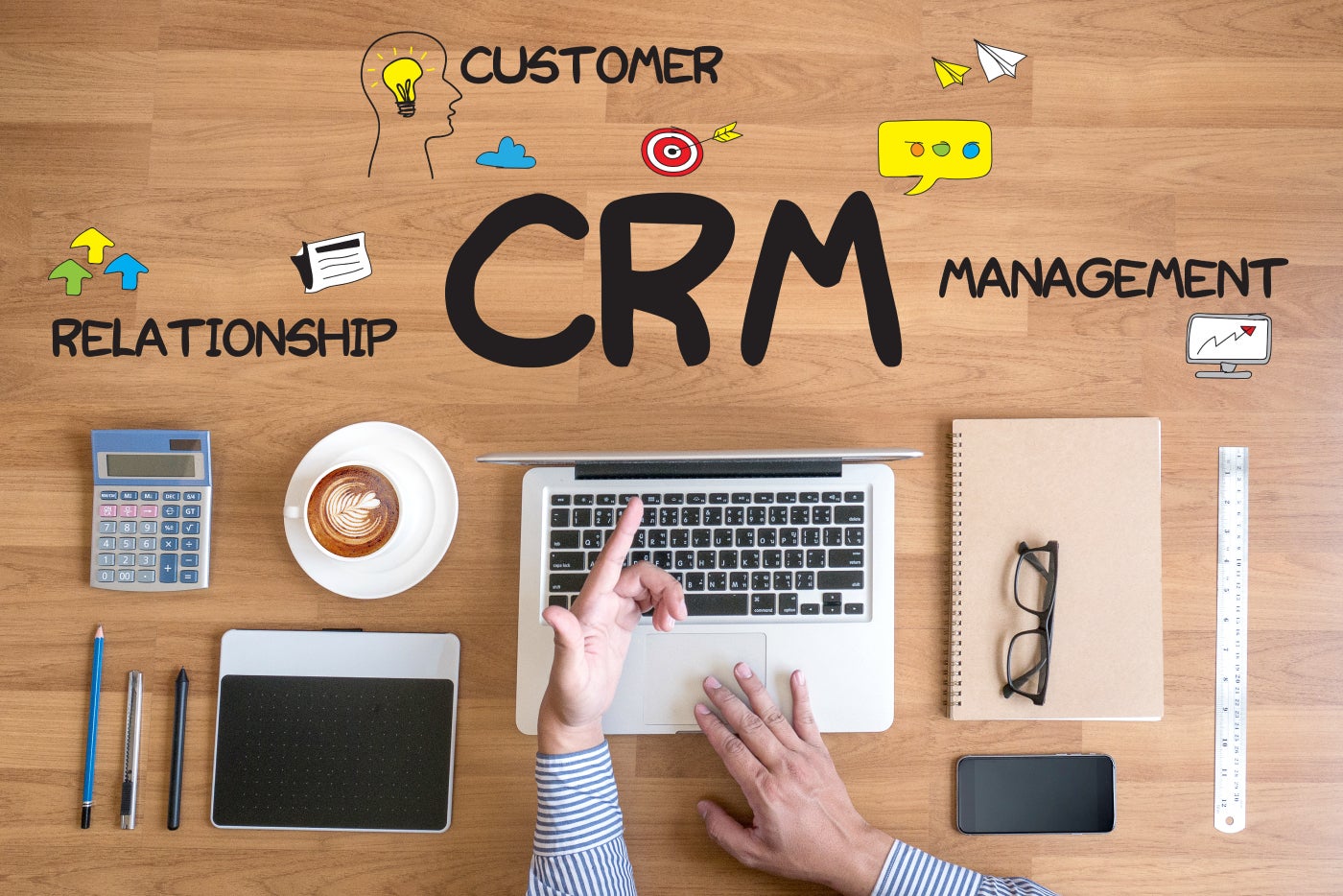- Best for white label CRM for marketing: DashClicks
- Best white label CRM offering a mix of pricing and features: Bitrix24
- Best white label CRM offering scalability: Vendasta
- Best for tailoring sales processes and automations: Pipedrive
- Best for customizing with additional coding: OroCRM
- Best for project and sprint management: ClickUp
White label CRM tools are a type of customer relations management software that users are able to completely customize with their own branding, either for their unique business needs or to resell to clients. Organizations might choose a white label CRM software over one without that functionality for how quickly — and often cost effective — implementation can be, so teams can begin using it almost immediately.
Featured Partners
Top white label CRM software comparison
What categorizes any top CRM software as a white label CRM is a pre-built platform, so organizations can edit, add, and organize features particular to the business or industry. Customization, integration capability, an intuitive interface, and reporting tools are all top features to consider when looking for providers.
Let’s dive deeper into some of the top white label CRM software like DashClicks, Bitrix24, and more.
| Software | Star rating | Customizations | Integrations | Intuitive interface | Reporting features | Free tier | Starting price* |
|---|---|---|---|---|---|---|---|
| DashClicks | 4.2/5 | High | Yes | Yes | Yes | No | $99 per month |
| Bitrix24 | 4.1/5 | Mid | Yes | Yes | Yes | Yes | $49 per 5 users, per month |
| Vendasta | 3.9/5 | Mid | Limited | Yes | Limited | No | $79 per user, per month |
| Pipedrive | 3.6/5 | Mid | Yes | Yes | Yes | No | $14 per user, per month |
| Oro | 3.2/5 | High | Yes | Limited | Limited | Yes | Contact for quote |
| ClickUp | 4.1/5 | High | Yes | Yes | Yes | Yes | $7 per user, per month |
| *Starting price with an annual subscription. | |||||||
DashClicks: Best for white label CRM for marketing

DashClicks is an all-in-one agency platform offering white label fulfillment and software to marketing agencies. DashClick markets all of its solutions as white label, offering coverage over end-to-end sales processes, from identifying and targeting leads to closing deals. Users can totally adapt their platform to attract both inbound and outbound leads, then convert those leads into customers and finally help maintain those clients through optimized project management.
Why I chose DashClicks
DashClicks divides its core features into how businesses can attract customers, maintain customers, and then maintain those relationships. DashClicks has advanced website building tools that can be used as a marketing tool for attracting new customers. Its functionality as a white label software is robust, with customizations available from one dashboard. This makes it a great option for those looking for a one-stop-shop for a CRM tool.
DashClicks pricing structure is unique. It offers its services at a flat fee rather than pricing the tool out by the number of users or contacts. This could be a benefit for mid- to large-size organizations. For smaller businesses looking for a provider with pricing plans that depend on user count, check out Bitrix24.
Pricing
What’s unique about DashClicks is that it offers CRM software at a flat fee. It is not dependent on the number of users or contacts the business expects to have.
- Flat fee: $99 per month. This payment provides access to all apps and features and allows unlimited users and sub-accounts.
Features
- Sales pipelines: Access and track multiple deals and streamline sales processes all from one dashboard. DashClicks allows for unlimited sales pipelines, which helps businesses have total transparency over different processes.
- Analytics dashboard: Gain real-time insights into campaign and project reporting. Through this feature, DashClicks offers access to valuable reporting across all channels for entire teams from one single dashboard.
- Website builder: Utilize DashClicks’ InstaSites platform to build an entire website with cohesive branding through their drag-and-drop feature. Uniquely, users can even build websites in bulk with AI-powered tools, all from one place.

DashClicks pros and cons
| Pros | Cons |
|---|---|
| 14-day free trial. | Can be costly compared to alternatives. |
| Offers a feature-rich mobile application. | Users report poor social media management. |
| Vast social media integrations. | Users report occasional platform bugs. |
Bitrix24: Best white label CRM offering a mix of pricing and features

Bitrix24 offers an entire suite of business tools like calendars, contact centers, website builder, and a reliable CRM tool. Bitrix24’s white labeling functionality allows businesses to totally customize the solution with their own brand identity, including logo, color scheme, and domain name. From there, businesses can collect high value leads through web forms, email, and social media campaigns and then nurture those leads through their branded platform.
Why I chose Bitrix24
Bitrix24 gives businesses and their end users a solution to customizing a white label CRM for a competitive price. Especially with its 30-day free trial, users are able to access an e-commerce module with online payments and estimates. Users are also given built-in project tracking and management tools in addition to all standard marketing and CRM features. Bitrix24’s available integrations
Even though Bitrix24 is so cost effective, there are reports of the platform not being as user-friendly as others on this list. If you want an intuitive white label CRM system, check out DashClicks or Pipedrive.
Pricing
- Free: Unlimited users and 5 GB of storage with limited access to features like collaboration, website builder, and other core CRM tools.
- Basic: $49 per 5 users per month, billed annually, or $61 per 5 users when billed monthly. This tier offers everything in the free tier, plus more task and project features and customer support.
- Standard: $99 per 50 users per month, billed annually, or $124 per 50 users when billed monthly. This includes everything in the Basic tier plus video calls, CRM analytics, and more.
- Professional: $199 per 100 users per month, billed annually, or $249 per 100 users when billed monthly. This tier offers advanced business process automations and more.
- Enterprise: $399 per 250 users per month, billed annually, or $499 per 250 users when billed monthly. This tier offers full support of HR, scalability, administration tools, and more.
Features
- Bots and AI: Use bots and AI on the site to answer common questions through chat features. This helps smaller businesses with customer support through the business’ website, so reps can focus their time elsewhere.
- Mobile app: Download Bitrix24’s easy-to-use mobile app to increase user flexibility. Since Bitrix24 is a cloud-based platform, all client information and data can be accessed on the go through their secure storage.
- Multichannel communication: Communicate internally with secure, speedy, and native chat tools like live chats, comment boxes, and built-in telephony services.

Bitrix24 pros and cons
| Pros | Cons |
|---|---|
| Offers iOS and Android mobile applications. | Users report a learning curve when starting with the platform. |
| Offers native and third-party integrations. | Reports of delayed reserved resource reports. |
| Users report file sharing and team collaboration is easy. | Users report poor setup, support, and refund policies. |
Vendasta: Best white label CRM offering scalability

Vendasta offers an Agency-In-A-Box solution that builds a CRM platform that handles end-to-end sales and marketing. Its services have been used by startups and international tech companies alike. Vendasta’s Starter premium tier offers only co-branded content, while its Professional tier and beyond are totally white labeled with logos, domains, and more. Its white label features include lead and content automation.
Why I chose Vendasta
Vendasta provides extensive support for those looking to purchase and then resell their CRM solution. It specializes in helping organizations reproduce their solution to sell to local businesses in their market. If your team doesn’t have the resources or expertise, Vendasta offers a white label marketing services team to fulfill digital marketing services under your business’s brand.
Vendasta can be pricey compared to others on this list of top white label CRM providers. If you’re looking for a more budget-friendly solution, and depending on your business size, consider DashClicks or Pipedrive.
Pricing
- Always Free: Businesses can access the platform for free and then only pay for the wholesale costs of the products they resell.
- Full-stack Agency: Starting at $50 per month. Access a full suite of white label sales and marketing tools.
- Starter CRM: $79 per user per month, billed annually, or $99 per user when billed monthly. This tier supports unlimited client users, 1,000 email sends a month, and more.
- Professional CRM: $499 per 5 users per month, billed annually, or $649 per 5 users when billed monthly. This includes everything in the Starter tier plus 1,000 workflows per month, email tracking, and more.
- Premium CRM: $999 per 10 users per month, billed annually, or $1279 per 10 users when billed monthly. This tier offers everything in Professional, plus a customized business app, online learning resources, and more.
- Custom CRM: $2499 per a custom amount of users per month, billed annually, or $3099 per when billed monthly. This Custom tier offers full access to Vendasta’s features, like in-market training, team reporting, and more.
Features
- Client meeting tracking: Connect with clients through integrations with Google Meet, Zoom, Crankwheel, and Meeting Scheduler built directly into the Vendasta platform.
- Sales collaboration: Grant the entire organization visibility into the latest sales activities and interactions from prospects. Sales reps can see where they rank against each other using metrics like revenue or opportunities in real time.
- Snapshot report: View automated snapshot reports that produce detailed analysis of marketing channels and competitive intelligence powered by Google.

Vendasta pros and cons
| Pros | Cons |
|---|---|
| Users praise customer support and training. | Users report frequent platform bugs. |
| Vendasta marketplace offers robust customizations. | Limited reporting capabilities. |
| Offers robust marketing solutions. | Users report complicated billing processes. |
Pipedrive: Best for tailoring sales processes and automations

Pipedrive is a totally customizable CRM software that allows users to standardize the processes and activities associated with each deal and make it specific to their business needs. Users can customize pipelines with visual kanban boards, add custom fields, and multiple currencies. There’s the additional feature of accessing Pipedrive’s marketplace, where users can purchase tools or open APIs to connect other software in their tech stack.
Why I chose Pipedrive
Pipedrive is a very intuitive operational CRM that’s easy to use and offers visual pipelines for its users. Pipedrive also allows for different partnerships with their platform. Solution providers, technology partners, and affiliate partners can all customize how their businesses integrate their solution with Pipedrive to offer branded customers access.
Pipedrive can help organizations tailor processes to their unique business needs. But if you’re looking for an all-in-one white label agency with more marketing solutions, consider DashClicks.
SEE: For more information on this provider, check out this Pipedrive review.
Pricing
- Essential: $14 per user per month, billed annually, or $24 per user when billed monthly. This tier comes with product catalogs, data import and exporting, custom fields, and more.
- Advanced: $39 per user per month, billed annually, or $49 per user when billed monthly. The advanced tier comes with everything in Essential plus — email open and click tracking, group emailing, automations, and more.
- Professional: $49 per user per month, billed annually, or $69 per user when billed monthly. This includes everything in Advanced, plus revenue forecasting, team management, and more.
- Power: $64 per user per month, billed annually, or $79 per user when billed monthly. Power tier supports everything in Advanced, including 90 active automations per user, unlimited insights dashboards, and more.
- Enterprise: $99 per user per month, billed annually, or $129 per user when billed monthly. This top tier includes everything in lower tiers plus unlimited open deals, custom fields, insight reports, and more.
Features
- Permissions: Customize what users can do in Pipedrive. Beyond this key feature, Pipedrive offers variable user permission sets that are suited for different levels of user access.
- Multilingual multi-currency: Sell internationally since Pipedrive is available in 22 languages and in all major currencies. It also specifically supports multiple currencies for organizations that sell internationally.
- Pipeline stages: Create pipeline stages that correspond with each organization’s unique sales flows. Pipedrive comes with basic pipeline stages, but users can rename, create, delete, or reorder them, as well as create multiple views.

Pipedrive pros and cons
| Pros | Cons |
|---|---|
| 14-day free trial. | Add-on features can be pricey. |
| Offers 24/7 customer support. | Automations and smart contact data only available for premium tiers. |
| Offers a la carte upgrades and purchases. | Security alerts and rules only available for Enterprise tiers. |
OroCRM: Best for customizing with additional coding

OroCRM gives developers a head start since all basic CRM features are pre-built into the platform. From there, users can build and code on top of the platform and get to market faster. Some core features include accounts, leads, and campaign management tools. If the intention is to resell the product, the OroCRM team works with OEM resellers to build pricing and licensing models for end-customers.
Why I chose OroCRM
OroCRM is ranked on our list of top open-source CRMs. This software offers specific features that can help B2B ecommerce organizations that are looking to move their businesses totally online in one hub. OroCRM also supported a variety of industries, including real estate, financial services, insurance, retail, and more.
Since OroCRM does require extensive coding experience, it might not be the easiest platform to start with for some businesses. If you’re wanting a white label CRM with add-on features prebuilt, consider looking into DashClicks for their all-in-one platform.
Pricing
- Open source CRM: Free to download.
- OroCommerce: Contact for quote. Enterprise pricing is dependent on cloud hosting, GMV and users. Plans start with 25 admin users, and additional users can be added for an extra fee.
Features
- Workflows: Build multiple workflows to optimize best practices and manage specific sales processes, marketing activities, and more. OroCRM also offers email and Google integrations that automatically upload and track emails, contacts, and calendar events.
- Recency, frequency, and monetary analysis: Identify top customers based on how recently they’ve purchased, how often, and how much they spend when they purchase. From there, OroCRM uses that information to create segments for targeted marketing campaigns.
- Contact management: View and manage all of their accounts, customer interactions, and information from one hub. OroCRM will also automatically sync and update customer profiles, and merge accounts. This gives users complete control over the way they manage their customers.
OroCRM pros and cons
| Pros | Cons |
|---|---|
| Provides self-guided demos. | Doesn’t offer mobile applications. |
| Offers B2B expertise. | Users report a platform learning curve. |
| Users praise Oro’s feature richness compared to alternatives. | No upfront pricing. |
ClickUp: Best for project and sprint management

ClickUp’s white label setting helps businesses create Workspaces that offer a more branded experience for both internal and external visitors. The white label feature allows admins to customize their ClickUp Workspace logos, colors, and URLs. ClickUp’s white label functionality is only available in the paid Enterprise tier. This way, businesses can brand sprint trackers and project dashboards for internal review or to share progress with clients.
Why I chose ClickUp
ClickUp is a general CRM software with advanced project management tools and functionality. With features that improve collaboration, enhance visibility, and automate workflows, ClickUp users can also manage resources and HR metrics with time tracking, workload views, and goal progress dashboards.
Users of ClickUp who want to white label their platform have to invest in the Enterprise plan to access those tools. If you want this functionality and don’t want to invest in such an expensive paid tier, I recommend OroCRM.
Pricing
- Forever Free: Free for unlimited users, allowing up to 100 MB of storage, collaborative docs, real-time chat, and more.
- Unlimited: $7 per user, per month when billed annually or $10 when billed monthly. This plan includes unlimited storage and integrations, native time tracking, agile reporting, and resource management tools.
- Business: $12 per user, per month when billed annually or $19 when billed monthly. This tier supports all Unlimited features plus Google SSO, custom exporting, advanced automations, and dashboard features.
- Enterprise: Contact ClickUp directly for a quote. This Enterprise tier offers all Business functionality plus white labeling, MSA and HIPAA compliance, AI compatibility, custom roles, and more.
Features
- Portfolios: Organize your team’s objectives, including product releases, marketing campaigns, company objectives, and even product or store launches.
- Goals and targets: Track progress with numerical, monetary, true or false, and task-based targets that can be measured weekly, monthly, quarterly, or annually.
- Whiteboard: Connect and collab with team members for brainstorming, strategy, mapping, and agile workflows within a whiteboard.
ClickUp pros and cons
| Pros | Cons |
|---|---|
| 14-day free trial. | Does require some configuration before you can use it. |
| 24/7 customer support. | Real users report a clunky user interface. |
| Can be HIPAA compliant. | Users report occasional bugs with constant updates. |
What is a white label CRM?
A white label CRM is a fully customized and branded solution that businesses can use internally or resell to customers. When branding a white label CRM for reselling to clients, you’re able to provide marketing automations, contact management tools, and more while making the solution look like your own and controlling the price you resell it at. Pre-load and customize your content into the software before selling it to customers. Opting in for a white label CRM should be an intentional business move, so I recommend learning how to choose a CRM that works best for your business needs and goals.
Benefits of white label CRM software
Offering a white label CRM software means you’re elevating your brand for internal use as well as client-facing interactions. Here are some benefits of a white label CRM software:
- Quick deployment: Save money and time white labeling a CRM software so your business doesn’t have to build one entirely from scratch.
- Increase brand awareness: Position your brand and business as a trusted authority with a cohesive solution.
- Enhanced customer experience: Provide a seamlessly integrated software solution for clients that simplifies their customer journey through your sales process.
How do I choose the best white label CRM software for my business?
Now that we’ve identified the top CRM providers with white labeling functionality, the next step would be to request demos, sign up for free trials, or begin communicating with the sales team of the providers on this list that pique your interest. White label CRMs are known for their easy onboarding and deployment of the software, helping businesses get the CRM implemented and ready for selling.
Below are questions to consider asking when choosing white label CRM software:
- Does the CRM software integrate with tools you already have in your tech stack?
- What is the total in-market expertise for your industry, if any?
- Is the CRM scalable and detailed enough to fit your small business or enterprise?
- Does the software fit your business’s budget? Would a free CRM tool be a better option?
FORUM: Here are some factors to consider when choosing a CRM.
Review methodology
When I evaluated white label CRM software, I used an in-house rubric with outlined criteria with a special focus on white label capabilities. After scoring and then reviewing each provider with the rubric, an algorithm calculated an overall star rating, which I used to assign each software an ideal use case. That star rating is on a scale of 1-5.
Below are the exact scoring criteria I used:
- Cost: Weighted 25% of the total score.
- Core features: Weighted 25% of the total score.
- Customizations: Weighted 15% of the total score.
- Integrations: Weighted 15% of the total score.
- Ease of use: Weighted 10% of the total score.
- Customer support: Weighted 10% of the total score.
Frequently asked questions (FAQs)
Can you white label Salesforce?
Yes, you can white label a variety of Salesforce solutions. For example, users can build a custom and branded mobile app with mySalesforce. With no coding experience, businesses can upload branded assets, test beta versions, and then publish the new application directly on the App Store and Google Play.
Can you white label Pipedrive?
Yes, you can white label Pipedrive through their B2B partner programs. Pipedrive’s solution provider partnership allows you to market and resell the Pipedrive software with your professional services, such as sales consulting, onboarding, implementing, and customizing. As a solution provider, you also own the customer relationship by providing sales, billing, and technical support. In addition to this functionality, there is also the option to become a technology or affiliate partner.





